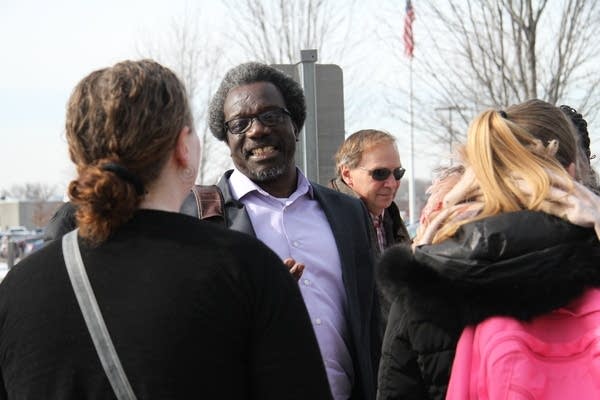ICE keeps Augsburg prof from Kenya in limbo

Mzenga Wanyama greets supporters Friday ahead of a meeting with Immigration and Customs Enforcement in Fort Snelling.
Riham Feshir | MPR News
Go Deeper.
Create an account or log in to save stories.
Like this?
Thanks for liking this story! We have added it to a list of your favorite stories.


